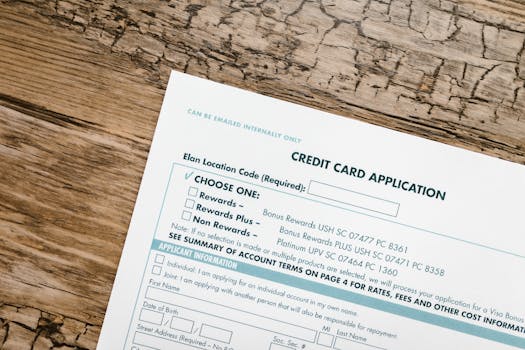Missing a loan payment can lead to a multitude of financial consequences that may impact your credit score and overall financial health. Understanding these repercussions is vital for anyone navigating the world of loans and credit. The implications extend beyond immediate penalties, potentially affecting your financial future for years to come.
In South Africa, many individuals rely on loans for significant purchases, such as vehicles or homes. However, when unforeseen circumstances arise, making timely payments can become challenging. This article offers a comprehensive overview of what happens when you miss a loan payment, detailing penalties, blacklisting, and long-term credit damage.
By gaining insight into these consequences, borrowers can better prepare themselves for the challenges that may accompany missing a payment. Let’s explore the potential fallout from late payments, starting with the immediate repercussions.
The Immediate Consequences of Missing a Loan Payment
After missing a loan payment, the first noticeable consequence is usually a late fee. Lenders impose these fees to encourage timely payments. The amount can vary based on your lender’s policies.
Moreover, your loan agreement typically outlines these fees, which can add up quickly if payments continue to be missed. Consistently failing to make payments can lead to an accumulation of costs.
In addition to late fees, your lender may report your missed payment to credit bureaus after a certain period. This reporting can significantly affect your credit score. A low score can hinder future borrowing opportunities.
Furthermore, the exact timing of the missed payment is crucial. Payments that are more than 30 days late are often reported, resulting in severe damage to your credit profile.
Being aware of the timeline for reporting missed payments can help manage your finances better. A proactive approach may mitigate the longer-term effects on your credit standing.
Understanding Penalties Associated with Late Payments
When you miss a payment, you may incur various types of penalties. The most common is a late fee, which varies by lender and loan type. Understanding these fees can aid in financial planning.
In South Africa, some lenders may also adjust your interest rate to reflect the increased risk associated with missed payments. This situation can substantially increase the overall loan cost.
Furthermore, some lenders may add additional penalties, like requiring larger payments once you’re back on track. It can lead to a cycle of missed payments and additional fees.
Loan agreements often include specific clauses promising penalties upon late payments. It is essential to read these terms to anticipate any additional charges.
Understanding the terms of your agreement is crucial in avoiding excessive penalties. Being informed empowers you to manage your payments more effectively and may even prompt you to reach out to your lender.
The Risk of Blacklisting in South Africa
One of the most serious consequences of missing a loan payment is the risk of blacklisting. In South Africa, being blacklisted means you are marked as a high-risk borrower. This status can severely limit access to credit.
It’s important to note that being blacklisted typically occurs after multiple missed payments or defaults. A single late payment usually doesn’t lead to blacklisting but can start the process.
Additionally, lenders utilize credit bureaus to access your credit history. If they see a pattern of missed payments, they may deny your applications for future loans or credit cards.
Your blacklisting status can remain in effect for several years, making it challenging to secure loans, credit cards, or other financial products. Restoring your creditworthiness takes time and diligence.
To help avoid being blacklisted, maintaining open communication with your lender can be vital. Discussing issues before they escalate often leading to more favorable outcomes.
Long-term Damage to Your Credit Score
The long-term effects of missed payments can be quite damaging to your credit score. A single late payment can remain on your credit report for up to seven years. This situation can affect your ability to borrow in the future.
Your credit score plays a significant role in determining the interest rates and loan terms you receive. Lower scores typically lead to higher interest rates, costing you more over the life of a loan.
Moreover, lenders often perceive missed payments as indicators of financial instability. Your credit history reflects your reliability as a borrower, and missed payments can tarnish that image.
It’s essential to monitor your credit report regularly. Catching missed payments before they get reported can help you address any issues promptly, potentially limiting damage.
Regularly checking your credit score can also reveal any inaccuracies affecting your score. Correcting these errors offers an opportunity to improve your creditworthiness and manage future loans better.
Potential Legal Consequences of Defaulting
If you continue to miss payments, your lender may pursue legal action to recover the debt. Defaulting on a loan can lead to court proceedings, adding further stress to your situation.
Lenders may seek judgments against borrowers who default, leading to wage garnishments or bank account levies. The process can escalate quickly from missed payments to legal battles.
In South Africa, the legal process for recovering debts is governed by the National Credit Act. Understanding your rights and responsibilities is crucial when facing potential legal consequences.
The legal ramifications of default can be lengthy and costly. Engaging in dialogue with your lender before debts escalate can help avert legal action.
Seeking help from a financial advisor or credit counselor can provide valuable guidance in navigating potential legal repercussions before they reach a critical point.
How to Manage Missed Payments and Mitigate Consequences
Managing missed payments requires proactive steps to mitigate the consequences effectively. First and foremost, communicate with your lender as soon as you realize you may miss a payment.
Many lenders have options for borrowers facing financial hardship, such as payment plans or temporary forbearance. Being upfront about your situation can often lead to a more flexible arrangement.
Additionally, setting up automatic payments can prevent missed payments in the future. Utilizing alerts for upcoming due dates can also keep your financial responsibilities top of mind.
Establishing a budget that prioritizes loan payments can ensure you allocate sufficient funds to meet your obligations. Keeping organized records can help track payments effectively.
Finally, consider consulting with a credit counseling agency. These organizations can provide personalized strategies for managing debt and improving your financial health.
Conclusion
Missing a loan payment can result in serious financial consequences, including penalties, blacklisting, and long-term damage to your credit score. Understanding these risks is essential for responsible financial management.
By maintaining open communication with lenders and setting up strategies to manage payments, borrowers can navigate their financial obligations more effectively. Taking proactive steps today can lead to a more stable financial future.
Ultimately, awareness and preparation are key. By understanding the implications of missed payments, you can make informed decisions that safeguard your financial well-being for years to come.
| Type of Consequence | Description |
|---|---|
| Late Fees | Charges imposed by lenders for missing payments, which can accumulate over time. |
| Credit Reporting | Notification to credit bureaus after missed payments can impact your credit score. |
| Blacklisting | Marking as a high-risk borrower, limiting access to future credit. |
| Legal Action | Pursuit of debt recovery through court proceedings may ensue from default. |
- Communicate with lenders promptly.
- Set up automatic payments for convenience.
- Keep track of payment schedules and deadlines.
- Consider credit counseling for personalized help.
- Monitor your credit report regularly for accuracy.

